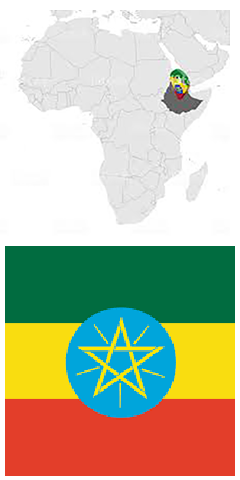News & Events
Making a difference in spite of Covid-19

The centre has the largest number of Unisa M&D students outside of South Africa and plays a great role in expanding the footprints of the institution on the African continent. It accounts for about 7.3% of all Unisa M&D students and one third of those outside the borders of South Africa. Recent graduation figures indicate that the centre contributed 17% of the university’s doctoral graduates.
Unisa Centre graduates notable delegates
Unisa graduates are contributing impressively in various sectors of the Ethiopian economy. Unique among them is the higher education sector, to which Unisa contributed close to 200 doctoral graduates. In addition to building the teaching and research capacity of Ethiopia’s public universities, the graduates play a remarkable role in the leadership of the universities. Unisa graduates serve as presidents and vice-presidents in some of these universities.
There are many Unisa graduates and students who occupy high-profile positions in the country. Notable among them are the president of one of the largest regions in the country, Ethiopia’s former Minister of Foreign Affairs, who is currently the secretary general of the Intergovernmental Authority on Development, a regional block in Eastern Africa; the commissioner general of the Ethiopian Federal Police; the State Minister of Peace; CEO of the Ethiopian Commodity Exchange; and a director general in the country’s Ministry of Health. The director general, a Public Health PhD student, is one of the key policy makers in the country’s fight against the Covid-19 pandemic. Many of Unisa’s health study graduates and students are also at the forefront of the effort to combat the spread of the pandemic.
Tackling registration, orientation, and workshops during Covid-19
The activities of the RLC are currently handled by ten well-experienced and committed staff members who operate on the motto of giving the required support “even if it is one student”. Similarly to what happened in South Africa with lockdown, the Ethiopian centre’s activities have been affected by the Covid-19 pandemic. Following the decision of the university that required all staff members to work from home, the centre took critical decisions and actions to ensure continuity of operations as smooth as possible. These include:
- Each staff member was provided with a wireless internet connectivity gadget.
- All staff members were asked to have a dedicated phone number for student use.
- Those staff members who are not provided with laptops were allowed to take their desktop computers home.
- New contact details of staff members were communicated to students.
The registrations of new and returning students were effectively facilitated working from home using the resources mentioned above. Some of the staff members worked tirelessly to achieve this, most of the time working after midnight to overcome the slow network connectivity during the day. Calls from students after office hours and during weekends were answered.
Challenges such as delay in capturing of research proposal module results, pending admission decisions, and delay in postgraduate bursary decisions were faced during the registration period. The challenges were resolved by closely working with supervisors, M&D coordinators of colleges, the chairs of departments, and the Post Graduate Administration Division (PGAD). The centre received excellent service and support from PGAD and Unisa Finance; they were instrumental in effectively handling registration facilitation of M&D students.
In previous years, the RLC used to hold contextualised, face-to-face orientation sessions for newly admitted research and course-work students. The main objective of the orientations was to enable new students to begin their studies with a clear understanding of the university, its processes, its resources, and what is expected from them. Since face-to-face orientation was not possible due to the restrictions imposed because of Covid-19, updated orientation materials were distributed to students by e-mail. The materials cover areas that hold information on the general student walk (from application to graduation), expectations from research students in the open, distance, and e-learning (ODeL) mode of education, how to make the most use of the Unisa online library and ICT platforms—myLife account and myUnisa portal.
The restriction on foreign travel that was imposed as a means of fighting the spread of the Covid-19 pandemic has also affected research methodology workshops that used to be arranged for new M&D research students. In order to overcome this challenge and assist the new students to have a good head start on their doctoral journey, a group called “Ethiopian Centre” was created on the Teams platform. Recent research materials that can be helpful for new M&D students were uploaded on the platform. The materials focused on methods, conceptual and theoretical frameworks, and searching the literature to find gaps. These materials were also sent to the students by e-mail. The centre collaborated with the CGS librarian and each of the new students were given access to previous years’ training materials too.
The RLC will continue to ensure that students are provided with services by using all means at its disposal to overcome the challenges posed by the international health crisis.
*By Tsige Aberra, PhD and Director, Ethiopia Regional Centre, and Meseret Tefera, Student Administration and Financial Aid Support, Ethiopia Regional Centre
Publish date: 2020/07/03
